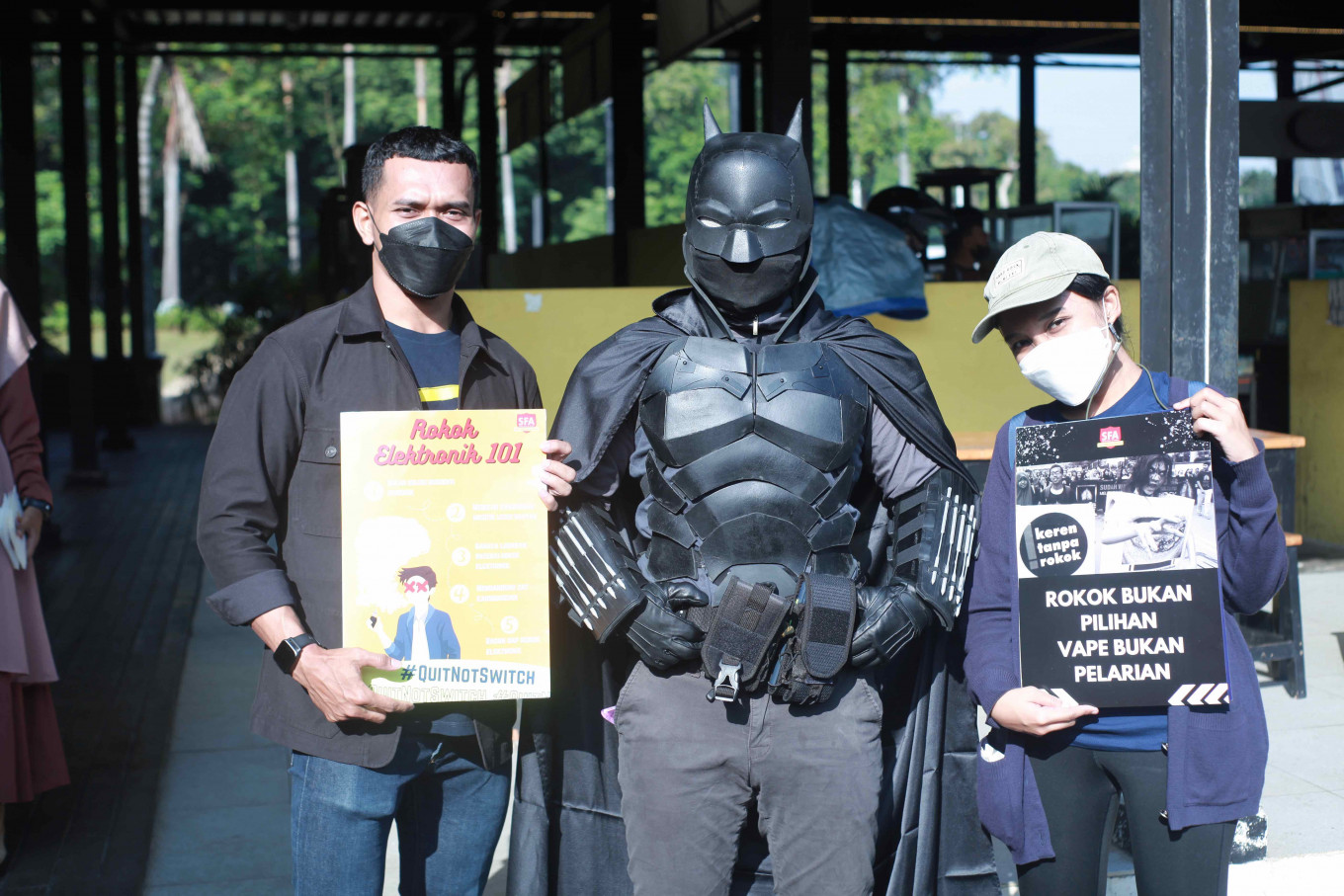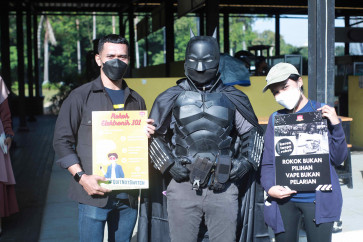Popular Reads
Top Results
Can't find what you're looking for?
View all search resultsPopular Reads
Top Results
Can't find what you're looking for?
View all search resultsTobacco control: Logic is marginalized, scientific evidence is futile
In managing the country's tobacco industry, all rational considerations are crushed by economic-industrial dictums with populist mantras such as job creation and tax and excise contributions, to contributions to the state budget.
Change text size
Gift Premium Articles
to Anyone
"Evidence doesn’t win anything today." Johnnie Cochran's outcry in the United States Crime Story series The People v. O. J. Simpson might be the most accurate reflection of the tobacco control situation in Indonesia today. Scientific facts and data are often disregarded in efforts to control tobacco consumption in the country.
Despite various studies showing the adverse impact of smoking on health, the implementation of firm and effective policies still faces many obstacles. Scientific evidence demonstrating the harmful effects of tobacco on public health is often ignored or opposed by powerful industry lobbies. As a result, regulations and policies that could save millions of lives are hindered, and efforts to reduce smoking prevalence among the population become increasingly challenging.
Just as in the case of OJ Simpson, where rhetorical power overpowered clear evidence, in Indonesia, certain narratives and interests often have more influence than scientific facts in tobacco control policies.
This situation is exacerbated by various factors, including weak law enforcement, a lack of public education about the dangers of smoking and economic dependence on the tobacco industry.
The tobacco industry, with its capital power, is capable of constructing a reality in such a way that public perception of cigarettes is heavily influenced by the narratives created by the industry. Cigarette advertisements easily spread sweet promises of freedom and lifestyle, while public service announcements providing objective education about the dangers of smoking are minimal.
According to the Health Profile Statistics 2022, tobacco entrepreneurs have political lobbies to influence tobacco policies and shape the public perception that tobacco is an acceptable commodity. The narratives they create are so powerful that they can overshadow clear medical and scientific facts showing the dangers of tobacco on health.
This grim reality shows how oblivious our nation is. We all know and fully realize what is right and what should be done. However, our inability to resist the temptation of short-term economic gains hinders us from achieving long-term sustainable benefits. Dependence on short-term gains also hampers the development of other more sustainable sectors.



















